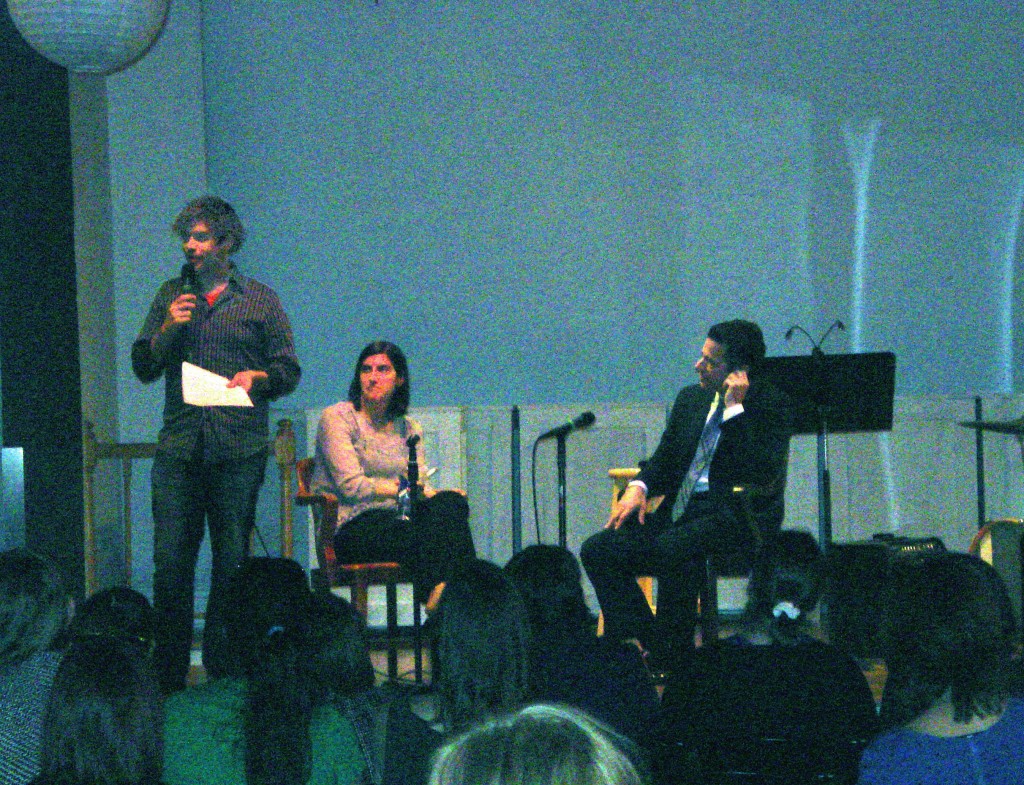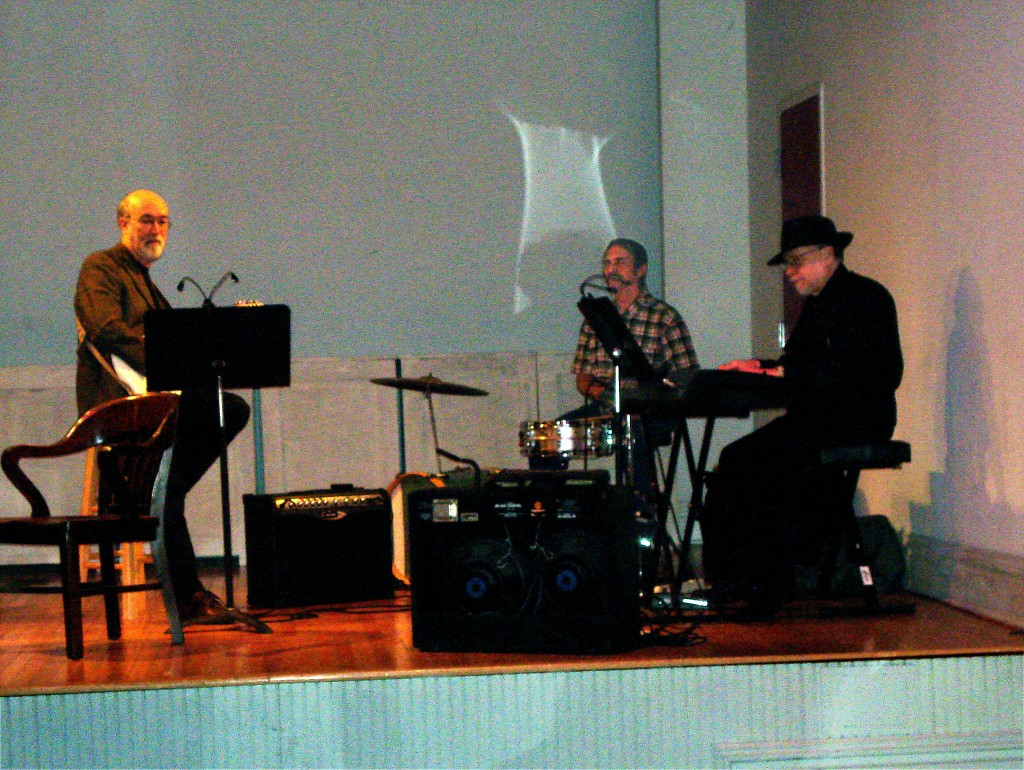I’m not going to the theater to see Ender’s Game, not because I’m boycotting it or Mr. Card, but because I don’t care enough about it to spend coin on it. Of course, that can be said of 99% of the movies released in the last couple of decades—we don’t go to the movies anymore. It’s a habit we got out of shortly after buying a house. Priorities, y’know?
Not that I don’t eventually see them. (We finally saw The Time Traveler’s Wife this past weekend, long after it’s theatrical release. A couple of weeks back we saw Cloud Atlas at a friend’s house.) We get there, eventually, but we aren’t driven by the mass energy of the zeitgeist. It has benefits. Seeing things well after the initial hype and scurry allows for a calmer, less media-driven appreciation. We see it when we’re ready.
I doubt I’ll ever be “ready” to see Ender’s Game in that for decades now I’ve encountered a low-level of discussion about the novel and, more recently, its author, that “distance” is not something achievable in the sense of seeing it when controversy is not hanging in the air, like the smoke from a dozen cigars shortly after their users have left the room. Ender’s Game is one of those novels that have acquired a kind of cultural mass, a displacement quotient, around which debate, reaction, argument, and controversy orbit.  Dune is one of those, but for different reasons. (Outside the genre examples of this abound—think Catcher In The Rye, Ulysses, Atlas Shrugged.) The mention of them in the right group triggers what eventually become standard, predictable set-piece conversations, and one counts status points and self-defines socially/politically/culturally by one’s stance vis á vis how one feels about the subject. They take on lives of their own. You could almost put them down on guest lists or schedule them as part of the entertainment over dinner.
I read Ender’s Game in the early 1980s, I don’t remember exactly when. I remembered the novelette from which it was expanded as being one of the better stories in Analog in the Seventies. My reaction? I enjoyed it thoroughly. It was a good ride. I went on to read several more Orson Scott Card novels, eventually losing interest in him. I felt the sequel to Ender’s Game—Speaker For The Dead—was a superior novel, much more substantive than the first. I did not then nor do I now think either was Card’s best work. I went through a phase of OSC and moved on. (He wrote a series of superb short stories early in his career, which are still, some of them, masterpieces.)
Now the movie is coming out and so has Mr. Card, apparently, and guess what? He’s become a lightning rod of controversy because he is not much like his landmark stories. He is a very openly homophobic man and apparently one of those who talks blithely about governmental overthrow if the country doesn’t go the way he thinks it should.
(I say “blithely” because we hear this all the time and often from people who are so engaged with things as they are that it is difficult if not impossible to take them seriously. It has all the significance of a child threatening to run away from home or stop breathing if things don’t conform to expectations. It’s a way of attracting a certain kind of attention. Someday the rest of us may learn that the best way to deal with this is to ignore them.)
How many other people does this sound like? We may personally know someone who thinks and talks this way.
And most of the time it never comes up. The plumber might be a Tea Party idiot, but since we never talk politics with him, we never know, and hell, he does good work. If someone else informs us that he is a political idiot, do we automatically stop using his services?
Boycotts are being called for with regard to OSC. In one instance, pains have been taken to distinguish between this and any kind of censorship. It’s not his ideas being boycotted but the man himself, by denying economic support. A fine line, that, and there is a difference, because ideas can’t be so constrained according to the moral calculus of our political standards, but we can always choose freely what we do or do not spend our money on. The difference is real, of course, but so is the fact that in public action ideas tenaciously refuse to be teased free of their purveyors, so to attack the one (economically) is to impact the other (dialectically).
I won’t be joining any boycotts. To my mind, a boycott is personal. I choose what to spend my money on and that makes it personal. By joining an organized boycott, it no longer is personal, not in the same way. It’s political, and mass political movements have a tendency to lose the kind of finesse and nuance the personal necessitates. Because your personal viewpoint necessarily becomes subsumed in the politics of a movement and dissension from the movement aut0matically becomes suspect by the larger group. Conformity evolves, individualism becomes confused then lost, and what began as a specific protest of a specific thing becomes a cookie cutter that divides the public from the private in a regrettably destructive way.
Further, this is coming painfully close to book banning. I know, no one is calling for that, in fact so far everyone is very carefully denying that is what is going on. But it’s not very many steps between boycotting one movie, one book, one author and boycotting a body of work and then arguing that said body of work should not be “supported” (available) and removing it from…
So it goes. Suddenly the socially conscious, liberal minded, civil rights oriented boycotters morph into thought police.
How likely do I think that is to happen here? Not very. But that’s not argument against refusing to participate in the boycott. Just because in this instance it won’t happen doesn’t make the process any less odious.
This is a purely personal viewpoint.  I won’t join or support a popular boycott like the one being called for against Orson Scott Card because by doing so I lose a certain amount of control over what I might mean by not spending coin on him or his work.
And besides, Card himself stated it—such protests put more money in his pocket, because controversy attracts profits in this game. Catcher In The Rye might never have become the phenomenon it did had it not been banned. The wrong kind of attention was paid it and boom! it’s a cultural icon. Regardless the quality of the book.
My personal opinion about Ender’s Game has been consistent since a few years after originally reading it when I realized that it was—is—manipulative, button-pushing, and fundamentally flawed. It depicts scenarios of responses to bullying that are devastatingly gratifying and wholly implausible and unsupportable. It is a well-written rollercoaster ride that I enjoyed at the time of reading that later left a bitter aftertaste. I thought it only worth praising because of its sequel, which is a novel of redemption and expiation, a startling portrayal of guilt and responsibility and an argument for tolerance.
Which is ironic, since the work portrays a level of empathy and compassion the public statements of the author belies. The man who wrote Speaker For The Dead is not the same as the one who seems bent on revolution in order to prevent gays from being able to live as equals in a human society.
Unless…and this is a wicked thought, but not inconsistent with some of the great monsters of religious thought down through the ages…unless the whole purpose of Speaker For The Dead is to argue that such redemption is the whole point of the series. That Ender is not sorry for what he (unknowingly) did to the Formics so much as willingly embracing his rôle as a Shiva Christ. His fate, his destiny is to shoulder that responsibility, not avoid it—not wish he had never done it—but to immerse himself in the total package of destroyer and mourner.
And one cannot mourn what is not lost. So the Formic had to perish so he, Ender, could be St. Stephen.
Which makes it not so much an argument for tolerance, belated or otherwise, but an argument that the goal of human enlightenment is to wallow in the shame of unbridled destruction.
(In a way, this is much like the many cults of the Native American the United States has embraced in the last century and a half, cults that romanticize and eulogize the vanished Indian, appraisals that could not exist the way they do without the very destruction of the Indian they seem to mourn. The Indian had to die in order for this peculiarly American form of self-flagellation to be enjoyed and enshrined in film.)
Not something, to my mind, which should be shoved off the stage, boycotted into oblivion. That is something that needs to be discussed, at length, so we can recognize it when we encounter it.


